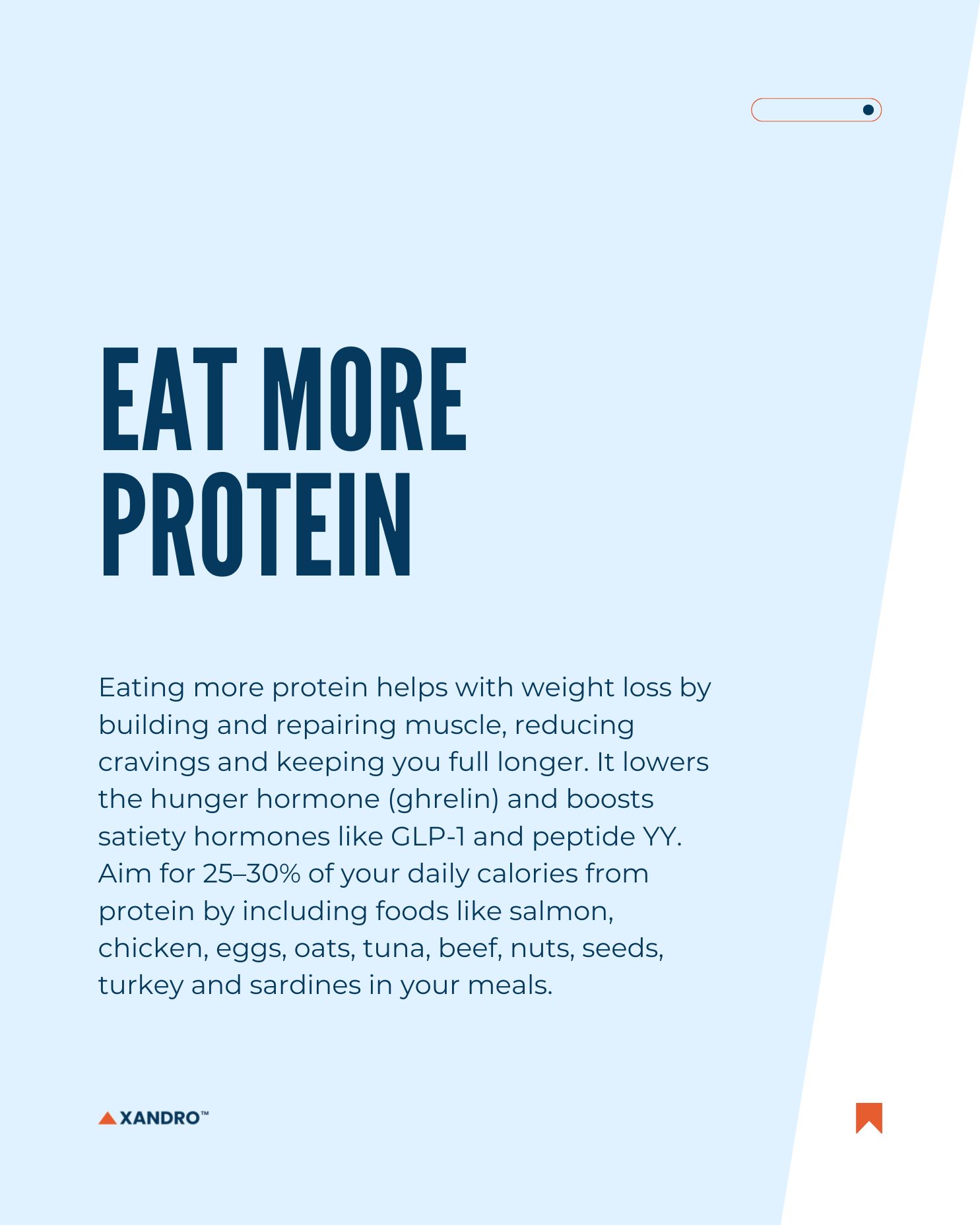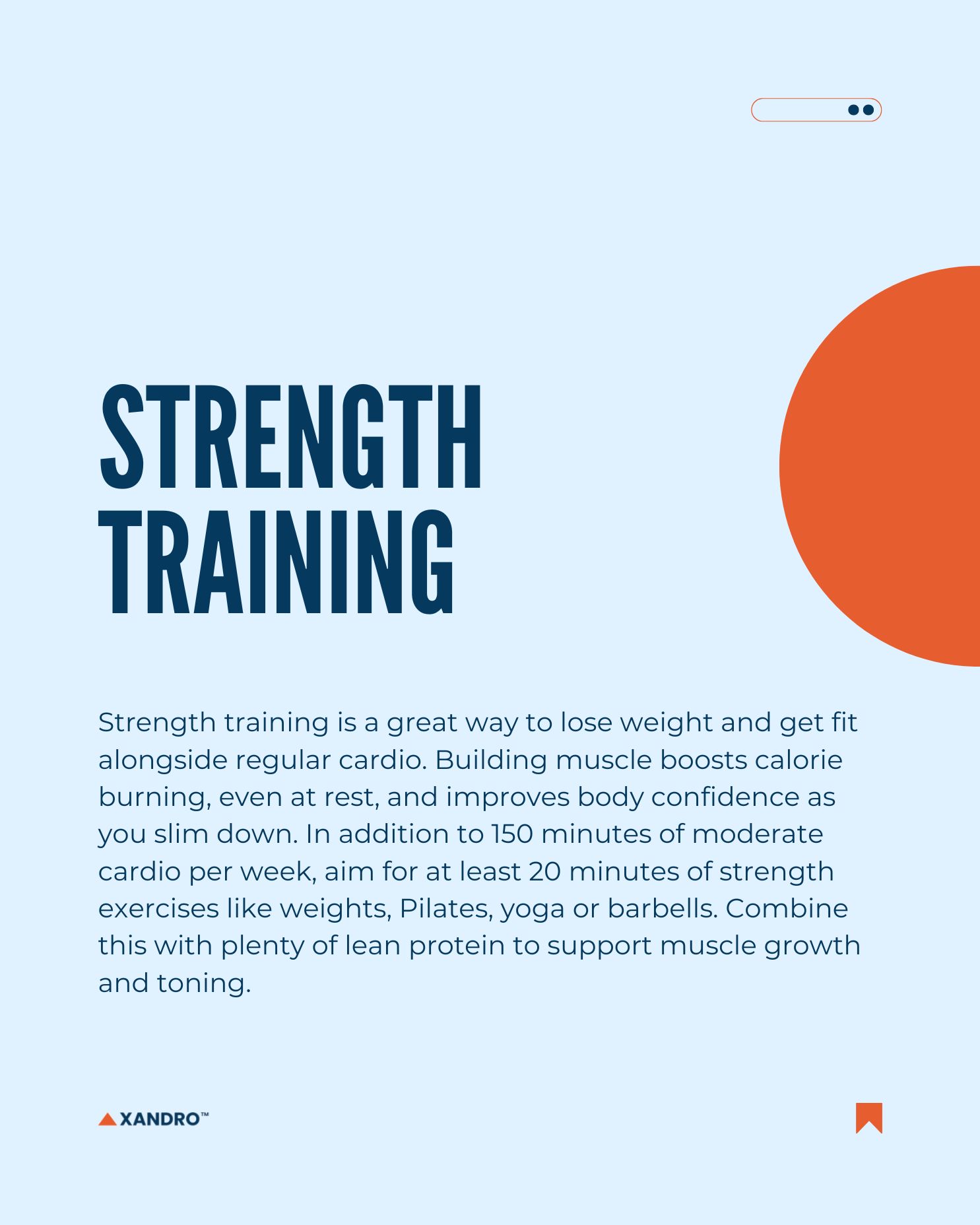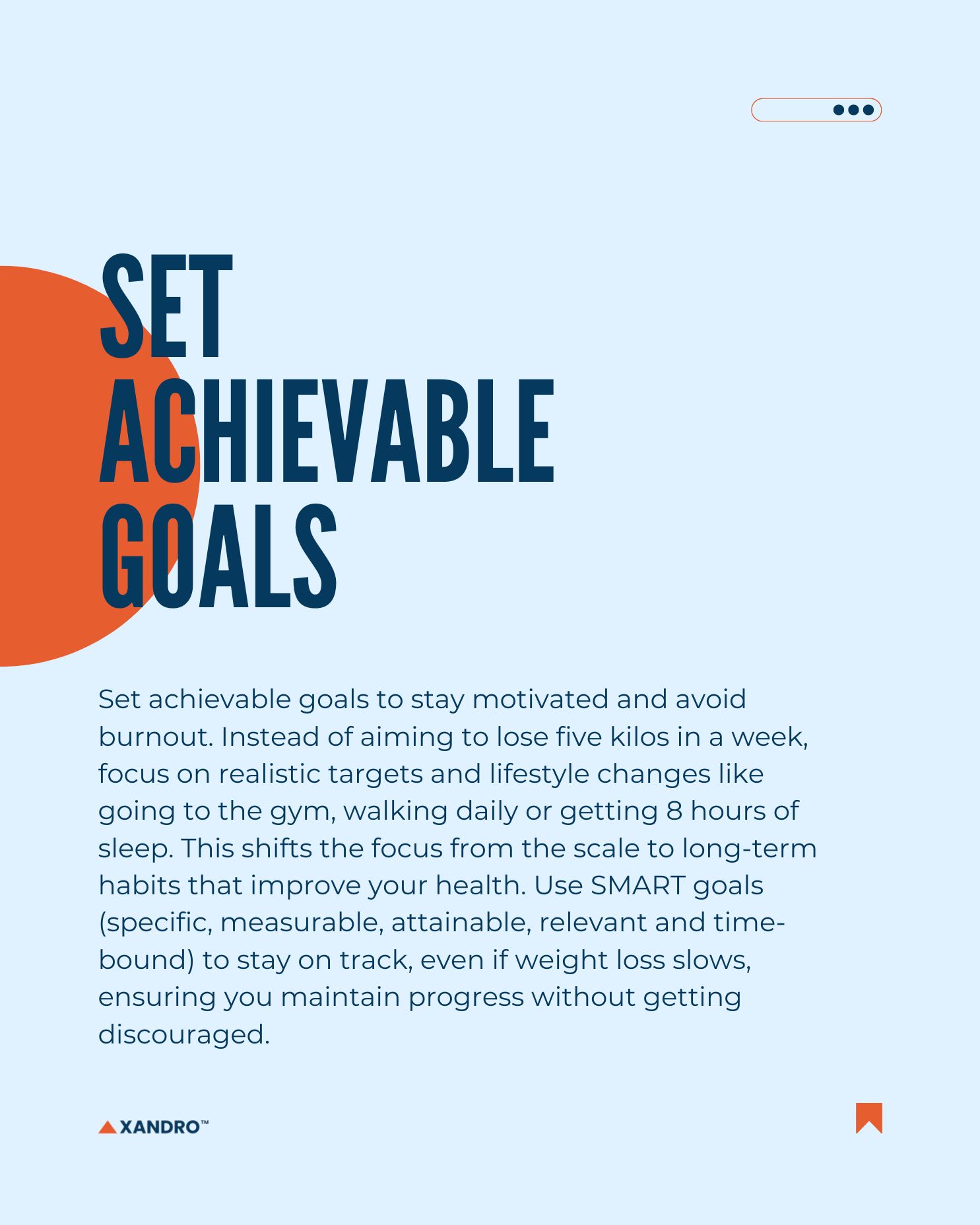Best Weight Loss Strategies: Proven Tips to Get Fit & Slim Down
20th Oct 2024
7 Habits That Can Help You Lose Weight
We know that being overweight comes with its health disadvantages: for example, your likelihood of developing serious health problems like heart disease, type 2 diabetes and hypertension increases. Once the weight is on, though, you can easily find it not coming off, which can be incredibly demoralising, no matter the reasoning.
To get from fat to slim (if that’s your goal), there’s no need to go through extreme weight loss methods as it all comes down to understanding the science of weight loss.
Further Reading: How To Use BMR In Weight Loss
It’s about making gradual progression, not about how to lose weight in 7 days — you want to be building healthy habits that allow you to lose the weight and then keep it off, and you can’t learn that in such a short time frame.
So, if you’re wondering, ‘Why can’t I lose weight?’ here are some effective weight loss strategies to help you. Jump there now:
- Eat Fewer Calories
- Eat Mindfully
- Eat More Protein
- Sleep Well
- Try Intermittent Fasting
- Do Strength Training
- Set Achievable Goals
- Weight Loss Strategies for Women
- Weight Loss Strategies for Men
What Are the Best Strategies to Lose Weight?
Here are some proven weight loss strategies for successful weight loss:
Make sure these calories come from a variety of nutritionally dense and colourful foods and snacks. These include eating vegetables, whole grains, fibre and protein, removing trans fats and limiting saturated fats.
Weight loss ingredients include eating plenty of fresh fruits and vegetables, legumes, nuts and seeds, whole grains and fish and limiting processed meats, baked goods, foods with added oils, butter and sugar as well as snacks like chips and cookies.
It might help to use a self-monitoring tool, such as a food and weight diary or calorie recording app to track your calorie intake. It doesn’t suit everyone, but some people find it helpful to track their progress by recording their weight and food intake each week. Just make sure you don’t get to the point where tracking starts to feel obsessive.
Further Reading: How To Count Your Calories
Also known as intuitive eating, this is where you are fully aware of what, when and why you’re eating. Basically, it’s about eating when you’re hungry, slowly chewing the food and focusing on the taste, then making it last for a longer time to help your body digest it and then register the signals for satiety.
This also helps you enjoy the food you eat! To help, you can:
- Sit down and eat at a table
- Avoid distractions while eating
- Eat slowly
- Choose foods that are full of nutrients and that will fill you up for hours
It’s important to eat lots of lean protein when losing weight and each day in general. Protein can help you build and repair muscle, so it’s even more important when combining diet with exercise.
Protein also helps reduce cravings by helping you feel satiated after you eat, so you won’t feel yourself giving into cravings and snacks throughout the day. It helps decrease the hunger hormone, ghrelin, and increase the satiety hormones GLP-1, peptide YY and cholecystokinin.
While this differs from person to person, the general guideline is around 25 to 30 per cent of your calories each day being protein. To do this, add more salmon, chicken breast, oats, eggs, tuna, beef, nuts and seeds, turkey and sardines to your meals.
FAQ: Can oatmeal make you fat? Eating too much of anything can make you put on weight, and oats are no different. Oatmeal is high in calories, especially if you like yours with toppings, but made with just water, minimum sugar and then topped with fruit makes it a great, meal that keeps you full and then helps you lose weight due to it being full of fibre, iron, magnesium and vitamin B1.
Further Reading: The Role of Diet in Weight Loss

Did you know that sleep affects your weight loss efforts?
Sleep manages ghrelin and leptin, your hunger hormones, and when you don’t sleep enough, you can end up feeling hungrier.
Try to maintain a regular sleep schedule and get between seven and nine hours each night. It was found that those who slept less than 7 hours each night were more likely to have a higher BMI and develop obesity than those who slept more.
Further Reading: The Importance of Sleep
Measuring your servings and portion control is one of the best ways to lose weight, but one step further is intermittent fasting.
If doing intermittent fasting, make sure to substitute low-calorie foods for high-calorie foods and foods that will keep you fuller for longer, such as fibre and protein (mentioned above).
It’s about eating your meals within a shorter time period and having regular short-term fasts. It’s been found to be as effective for weight loss as a low-calorie diet.
There are various methods you can try, such as fasting every other day, fasting for 2 out of seven days (5:2 diet) and the 16/8 method, where you fast for 16 hours and eat during an 8-hour window, often between noon and 8pm.
Further Reading: Intermittent Fasting for Longevity
Other than regular physical activity and more cardio, one way how to lose weight and get fit at the same time is to do strength training.
Along with the 150 minutes weekly of moderate-intensity cardio exercise you should be doing, you should also be building your muscles. Muscle helps you burn more calories, even when you’re not moving, and can make you feel more confident in how your body looks as you shed the weight.
As mentioned above, eat plenty of lean protein, but also do strength training exercises like barbells, weights, Pilates or yoga to help you tone and strengthen your muscles. At least 20 minutes per week should be your aim.

So, you’re excited to lose weight and tell yourself you’re going to lose five kilos in the first week… then don’t manage to as this isn’t realistic, then become unmotivated and eventually give up.
Focus on setting goals you can actually reach, as well as setting lifestyle goals, such as going to the gym a couple of times a week, sleeping for 8 hours or going for a walk each day. This way, you’re not totally fixated on the scales dropping but making lasting changes to your life that will have long-term benefits on your health.
These are often called SMART goals (specific, measurable, attainable, relevant and time-bound). It means setting goals you have a lot of control over so when weight loss seems to taper off or pause in the future, you’re still achieving your lifestyle and behavioural goals so you won’t get discouraged to quit.

- Do resistance training! It helps preserve bone density and increases the number of calories your body sheds at rest.
- Look into portion control rather than avoiding certain foods as women generally need fewer calories compared to men.
- Fix your sleeping schedule as a study found that women who got at least seven hours of sleep each night and better sleep quality had a 33 per cent high chance of weight loss success.
- Eat plenty ofprotein as it was found that men who followed a high-protein diet maintained their weight loss more than if they were on a lower-protein diet.
- Do HIIT exercises as this targets abdominal fat, which is where men tend to hold fat.
- While not a strategy, men tend to lose weight faster than women as they have more muscle, but it tends to even out with women over time, so don’t be discouraged if you’re not seeing results at the same speed as when you first started losing weight.
End Note
Now that you know the best weight loss strategies, it’s time to actually start doing them!
Weight loss is a journey that then turns into weight management. Removing the weight is definitely not as easy as putting it on and there are a variety of reasons as to why you might be finding it hard to shed those extra kilos/pounds.
Make sure you have a chat with your doctor before you start any crazy changes to your daily routine as you want to be sure that what you’re doing is safe for you — we’re all different, don’t expect the route we take to get healthy to be the same.
There are also supplements you can take to help with your weight loss journey, but remember, these are to go alongside the healthy habits above, not replace them.
Look into your vitamin and mineral levels and check if you’re deficient in anything, such as magnesium, which impacts your blood sugar and insulin levels in those who are overweight. It can also help with muscle contraction and sleep, which is important for those who are exercising in their weight loss journey.
You might also want to try Xandro’s Lean XP, a supplement that supports healthy weight and metabolism, as well as burns off visceral belly fat!
Remember, you need to develop weight management habits that you can maintain long term and the way to do that is to enjoy it, so try making it fun! It’s your health, after all!
